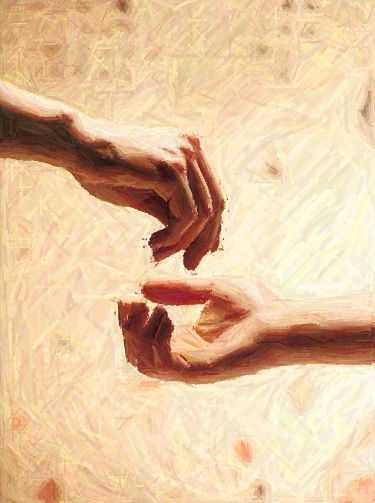Shahadah (Declaration)  Salat (Prayer)  Zakat (Alms giving)  Siyam (Fasting)  Hajj (Pilgrimage)  |
The Five Pillars of Faith Shahadah (Declaration), Salat (Prayer), Zakat (Alms giving), Siyam (Fasting), and Hajj (Pilgrimage). The Qu'ran and the Sunnah The Qu'ran is the holy book of the Islamic culture. Through the Qu'ran, God describes his laws and moral teaching. The Qu'ran holds a central position for Muslims everywhere, guiding them in all aspects of their lives. The Sunnah ("practice") is the example that Muhammad set for Muslims during his lifetime. The Sunnah teaches and guides Muslims, just like the Qu'ran. The Sunnah and the Qu'ran relate to the five pillars of Faith because the Qu'ran provides general commands to perform these five duties, and the Sunnah explains how to perform them using Muhammad's example. The body of Islamic law is called shari'ah, which means the "path to be followed." It's based on the Qur'an and the Sunnah. Shari'ah encourages obedience towards the Qur'an and the Sunnah and respect for others. Muhammad Muhammad was born in Makkah in about 570 C.E. After his father died, his clan was very poor, so his mother sent him to live with a nomad family. He taught one of the most popular religions in the world, Islam. In about 610 C.E., Muhammad prayed in a cave, where he was called to be a prophet, or a messenger of God, whom the Arabs called Allah. Soon, Muhammad began to preach to Makkans. He taught that people must worship one God, that all believers in God were equal, and that the rich should share their wealth. He also urged Makkans to take care of orphans and the poor, and to improve the status of woman. While some followed his teachings, many Makkans began to reject the changes Muhammad was trying to make. They began boycotting his teachings, and did many other things to stop his teachings from spreading, like torturing his weak followers and calling him a liar. |
|